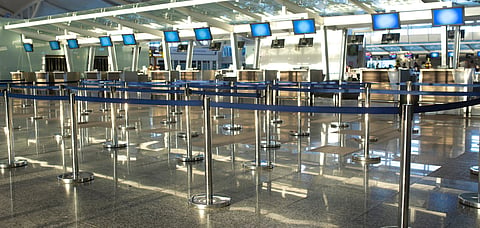

Despite India&rsquos Union Ministry of Health and Family Welfare reporting, in its latest COVID-19 update (December 18), active cases account for less than 1 percent of total cases, currently at 0.24%, the lowest since March 2020, the spike in the number of people infected with the Omicron variant worldwide, including India, poses a serious challenge for the health sector. According to media reports, Omicron cases are increasing around the world rapidly.
On December 17, the Union health ministry said 101 cases have been reported from 11 states in India, including 32 in Maharashtra and 22 in Delhi. The health ministry said it has been keeping a strict watch on the situation and analyzing the situation to prioritize the necessary action.
The Economic Times in a report quoted Juliet Pulliam, director of the South African DSI-NSF Centre for Excellence in Epidemiological Modelling and Analysis, as saying that the Omicron variant will spread rapidly in India (according to her projections).
According to medical experts, it is essential everyone must follow all pandemic preventive protocols, including avoiding travel and mass gathering.
Warned Dr. Balram Bhargava, Director General, Indian Council of Medical Research (ICMR), "It&rsquos time to avoid non-essential traveling, mass gathering, time to observe low intensity festivities ushering in this New Year.&rdquo
The travel and hospitality sectors, worst hit by the pandemic-induced lockdown and travel regulations, are doubly concerned. The gradual relaxation in travel rules and opening of international borders had brought hopes of renewed business, especially during the festive and seasonal holidays. But with the specter of a third wave of infections and health experts advising to avoid non-essential travel, enterprises fear they may see a recurrence of the restrictions going ahead.
According to a report by the World Travel & Tourism Council published prior to the emergence of the Omicron variant, 70 percent of travelers from the US, UK, Spain, Canada and Japan planned to spend more on travel in 2022 than they had in the past five years, including 2019. However, with the fear of the new variant and concerns over fully vaccinated people getting infected too, are likely to have a negative impact on travellers&rsquo mind-set, say most travel and hospitality managers.
The situation in India reflects the global outlook. Already travel operators and hotels have reported a spurt in cancellation of bookings. Many have said that travelers are showing an increasing interest in booking holidays where they can avail flexible cancellation options, a facility which many travel agencies and hotels are compelled to offer but to their own detriment.
The Times of India quoted Riaz Ahmed, President, Association of Approved and Classified Hotels of Kerala (AACHK), as saying &ndash &ldquoThe hotel industry was reviving and business had picked up by about 20 percent. But now again there is a crisis and we are seeing 50 to 60 percent cancellations in bookings. This will be the second peak season when we will have no business and this is not good news for the industry."
According to the latest forecast (November 2021) by the United Nations World Tourism Organization (UNWTO), the coronavirus pandemic will likely cost the global tourism sector two trillion dollar in lost revenue in 2021, and the same amount was lost in 2020, making it one of the sectors hit hardest by the health crisis. The report also said that the emergence of the Omicron variant has led dozens of countries to reinstate restrictions on arrivals, or to delay relaxation in COVID-19 travel and testing rules, leading to wide uncertainty for holiday season travelers worldwide. In fact, UNWTO expects international tourist arrivals to remain 70-75 per cent below 2019 levels in 2021, a similar decline as in 2020.
However, UNWTO Secretary-General Zurab Pololikashvili believes that while &ldquowe cannot let our guard down", we "need to continue our efforts to ensure equal access to vaccinations, coordinate travel procedures, make use of digital vaccination certificates to facilitate mobility, and continue to support the sector.&rdquo
